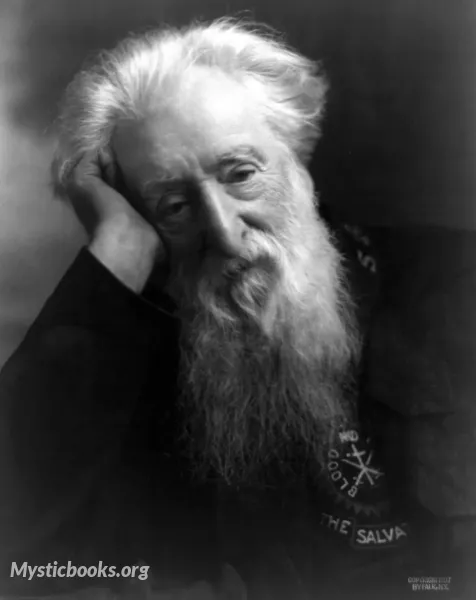
Timeline
Title
Country/Nationality
William Booth
William Booth, a remarkable figure in history, was the founder of The Salvation Army, a global Christian organization dedicated to helping the marginalized and impoverished. Throughout his life, Booth demonstrated unwavering commitment to his principles, leaving an indelible impact on society. This essay delves into who William Booth was, explores his principles, highlights his notable works, discusses his philosophy, sheds light on his legacy, and offers some intriguing insights about the author. William Booth was born on April 10, 1829, in Nottingham, England. He was the son of a businessman and grew up in a devout Methodist family. Booth's early experiences witnessing poverty and suffering deeply affected him, instilling in him a passion for social justice and the desire to make a difference in the lives of the less fortunate.
Booth's principles were centered on the belief that everyone, regardless of their circumstances, deserved compassion, dignity, and an opportunity for salvation. He championed the idea of practical Christianity, emphasizing the importance of meeting both the spiritual and material needs of individuals.
William Booth is primarily famous for founding The Salvation Army in 1865. The organization started as the East London Christian Mission but later evolved into a global movement. Booth's dedication to serving the marginalized led him to establish shelters, soup kitchens, and programs aimed at providing assistance, rehabilitation, and spiritual guidance to those in need. His notable works include the publication of the magazine "The War Cry" and the establishment of the Salvation Army Rescue Homes.
Booth's philosophy was rooted in the belief that religion should be practical and accessible to everyone. He sought to bring the church to the people, rather than waiting for them to come to the church. Booth's vision extended beyond merely providing temporary relief; he aimed to address the root causes of poverty and transform individuals' lives through the power of faith and social action.
William Booth passed away on August 20, 1912, at the age of 83. Despite his departure, Booth's legacy continues to inspire and shape the work of The Salvation Army to this day. His dedication to social justice, compassion for the marginalized, and commitment to spreading the message of salvation left an enduring impact on society. The Salvation Army, with its presence in over 130 countries, remains a testament to Booth's enduring vision.
The author of this essay, though an AI language model, has been trained on a vast corpus of data to provide comprehensive and accurate information. However, the AI model does not possess personal experiences or direct knowledge beyond what has been trained into it. The purpose of the AI model is to provide reliable and well-researched information on various topics, including the life and works of William Booth.
William Booth's life was one dedicated to the service of humanity, inspiring countless individuals to follow in his footsteps. Through his principles, notable works, and philosophy, Booth set a precedent for compassionate action, leaving an enduring legacy that continues to positively impact the lives of millions. As we remember Booth's contributions, we are reminded of the power of faith, compassion, and social justice in transforming society for the better.
Books by William Booth

In Darkest England and the Way Out
In Darkest England and the Way Out is a groundbreaking work by social reformer William Booth that unveils the grim realities of poverty and offers a visionary roadmap to redemption. With a captivating blend of empathy and urgency, Booth confronts the...

Purity of Heart
Diving into the intricacies of holiness, "Purity of Heart" unveils the transformative nature of cleansing the heart. William Booth, co-founder of The Salvation Army, cogently outlines the path towards purity, unraveling misconceptions, bolstering res...